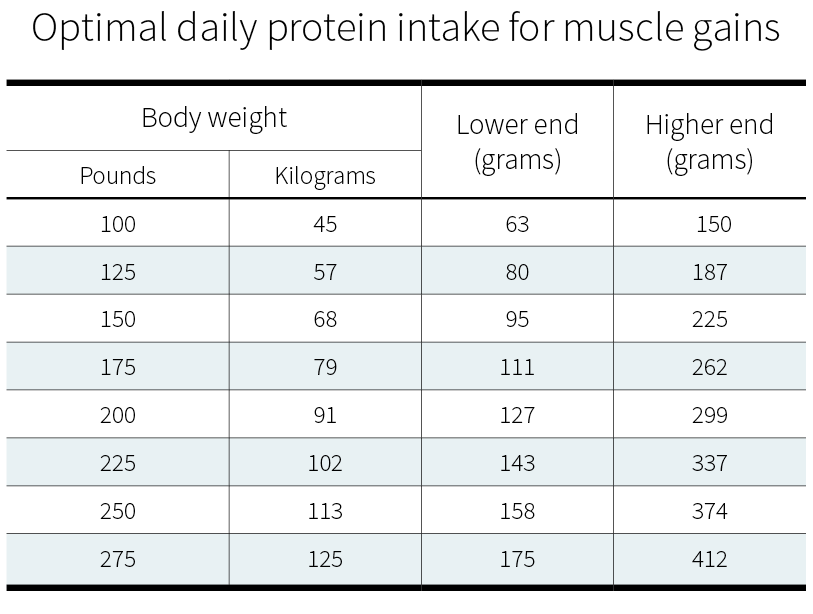Protein is an essential macronutrient that plays a vital role in numerous bodily functions. From building and repairing tissues to supporting immune health, protein is crucial for overall well-being. Understanding your daily protein needs can help you optimize your diet and achieve your health goals. This article will delve into the intricacies of protein intake, exploring recommended amounts, factors influencing requirements, and the benefits of adequate protein consumption.
This comprehensive guide will first outline general daily protein recommendations, followed by a detailed examination of factors that can influence individual needs. We’ll then explore the crucial role protein plays in muscle growth and repair, as well as its broader health benefits. Finally, we’ll summarize key takeaways and emphasize the importance of personalized guidance for determining optimal protein intake.
Daily Protein Needs
Determining your daily protein requirements is essential for maintaining good health and supporting various bodily functions. While individual needs vary based on factors like age, activity level, and health status, general guidelines provide a starting point.
The recommended daily allowance (RDA) for protein is typically 0.8 grams per kilogram of body weight, or 0.36 grams per pound of body weight. This translates to approximately 56 grams of protein per day for a 150-pound individual. However, it’s important to note that these are general recommendations and may not be sufficient for everyone.
Protein Intake Recommendations

Protein intake recommendations can vary depending on individual circumstances. Athletes, individuals engaging in intense physical activity, or those recovering from injuries may require higher protein intakes to support muscle growth and repair. Pregnant and breastfeeding women also have increased protein needs to meet the demands of fetal development and milk production.
Consulting with a healthcare professional or registered dietitian can help you determine your specific protein requirements based on your unique needs and goals. They can provide personalized recommendations tailored to your age, activity level, health status, and dietary preferences.
Factors Affecting Protein Requirements
Several factors can influence an individual’s protein requirements.
Age
Protein needs tend to increase during childhood and adolescence due to rapid growth and development. As we age, protein requirements may slightly decrease, but it remains essential for maintaining muscle mass and supporting overall health.
Activity Level
Individuals who engage in regular physical activity, particularly strength training or endurance exercises, require more protein to support muscle repair and growth. The intensity and duration of exercise can also influence protein needs.
Health Status
Certain medical conditions, such as injuries, surgery, or chronic illnesses, may increase protein requirements for healing and recovery.
Muscle Growth and Repair

Protein plays a crucial role in muscle growth and repair. When you engage in physical activity, microscopic tears occur in your muscle fibers. Protein provides the building blocks (amino acids) necessary to repair these tears and stimulate muscle protein synthesis, leading to muscle growth and adaptation.
Consuming adequate protein after exercise is essential for maximizing muscle recovery and promoting hypertrophy (muscle growth). Aim to consume a protein-rich meal or snack within 30-60 minutes post-workout to provide your muscles with the necessary nutrients for repair and rebuilding.
Health Benefits of Protein
Beyond its role in muscle growth and repair, protein offers numerous health benefits:
- Weight Management: Protein can help promote satiety and reduce overall calorie intake, aiding in weight management efforts.
- Bone Health: Adequate protein intake is essential for maintaining bone density and strength, reducing the risk of osteoporosis.
- Immune Function: Protein plays a vital role in immune system function by supporting the production of antibodies and other immune cells.
Conclusion
Understanding your daily protein needs is crucial for optimizing your health and well-being. While general recommendations provide a starting point, individual requirements can vary based on factors like age, activity level, and health status.
Consulting with a healthcare professional or registered dietitian can help you determine the optimal protein intake for your specific needs. By consuming adequate protein, you can support muscle growth and repair, maintain healthy body weight, promote bone health, and strengthen your immune system.



